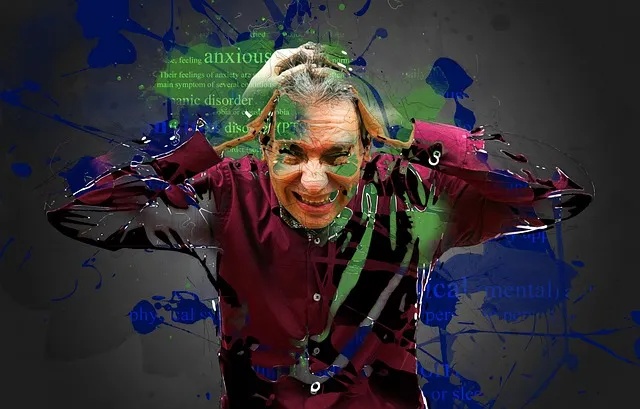Cultural competence is a cornerstone of high-quality mental healthcare, especially at Kaiser Permanente mental health services in Longmont, CO. By prioritizing cultural sensitivity and patient-centric care, this organization adapts traditional therapy methods to incorporate culturally relevant practices for diverse clients. This approach addresses language differences, stigma, and unconscious biases, fostering an inclusive environment that encourages open communication and trust. Through tailored strategies like crisis intervention, social skills training, and burnout prevention, Kaiser Permanente Longmont ensures equitable access to effective mental health services aligned with best practices in cultural sensitivity.
Cultural sensitivity is an essential aspect of providing effective mental healthcare, especially in diverse communities. This article explores strategies for improving cultural competence within mental health practices, focusing on the innovative approaches implemented by Kaiser Permanente Mental Health Longmont. We will delve into identifying and overcoming cultural barriers to care and provide insights on incorporating cultural awareness into therapy sessions. By enhancing cultural sensitivity, mental health professionals can build trust and significantly improve patient outcomes.
- Understanding Cultural Competence in Mental Healthcare
- The Kaiser Permanente Mental Health Longmont Approach
- Identifying and Addressing Cultural Barriers to Care
- Incorporating Cultural Sensitivity into Therapy Sessions
- Building Trust and Enhancing Patient Outcomes through Cultural Awareness
Understanding Cultural Competence in Mental Healthcare

Cultural competence is a vital aspect of mental healthcare practice, especially within organizations like Kaiser Permanente Longmont that serve diverse communities. It involves recognizing and appreciating the impact of cultural differences on an individual’s mental wellness and emotional well-being. This concept goes beyond basic diversity training; it encompasses a deeper understanding of various cultural beliefs, values, and practices to deliver effective treatment and support. By integrating cultural sensitivity, mental health professionals can create inclusive environments that foster open communication and trust, ensuring tailored guidance for each client.
In the context of Kaiser Permanente Longmont’s mental health services, cultural competence translates into offering personalized care that respects and embraces diverse backgrounds. This may involve adapting traditional therapy methods to incorporate cultural practices relevant to a patient’s heritage. For example, incorporating journaling exercises inspired by indigenous writing traditions or using mindfulness techniques rooted in Eastern philosophies can provide alternative approaches to promote emotional well-being. Effective communication strategies, tailored to cultural nuances, enable mental health professionals to connect with clients on a deeper level, ensuring every individual receives the support they need to navigate their unique mental wellness journey.
The Kaiser Permanente Mental Health Longmont Approach

The Kaiser Permanente Mental Health Longmont Approach represents a forward-thinking strategy within healthcare, emphasizing cultural sensitivity and patient-centric care. This model prioritizes understanding and respecting diverse cultural backgrounds, traditions, and beliefs as integral to effective mental health treatment. By focusing on cultural competency training for healthcare providers, Kaiser Permanente ensures that every interaction is informed by an awareness of potential unconscious biases and barriers to access.
This approach underscores the belief that fostering positive thinking and depression prevention must be tailored to meet the unique needs of individuals from various ethnic, racial, and cultural backgrounds. Through this lens, mental health services become more inclusive and accessible, addressing not just symptoms but also the broader social and cultural context in which patients live, ensuring a holistic and genuinely supportive environment.
Identifying and Addressing Cultural Barriers to Care

Cultural sensitivity is a cornerstone in providing effective mental healthcare, especially within diverse communities like those served by Kaiser Permanente Longmont. Identifying and addressing cultural barriers to care is an essential step in ensuring equitable access to services. Many individuals from different cultural backgrounds may face unique challenges that influence their willingness to seek mental health support or the way they express and perceive psychological distress. These barriers can range from language differences, which may hinder clear communication, to deeply rooted cultural taboos surrounding mental illness, leading to stigma and secrecy.
By incorporating strategies such as Crisis Intervention Guidance tailored to diverse populations, healthcare providers can foster a safe and inclusive environment. Social Skills Training programs that respect and incorporate cultural nuances can enhance interactions between patients and care teams. Additionally, Burnout Prevention Strategies for Healthcare Providers are crucial in maintaining a culturally competent approach, ensuring that mental health professionals remain resilient and responsive to the unique needs of their diverse patient populations.
Incorporating Cultural Sensitivity into Therapy Sessions

Incorporating cultural sensitivity into therapy sessions at Kaiser Permanente mental health Longmont is a fundamental step towards providing inclusive and effective care. It involves recognizing and respecting the unique cultural backgrounds, beliefs, and values of each client. Therapists can create a safe and supportive environment by learning about diverse cultural practices, traditions, and communication styles. This approach ensures that individuals from various ethnic and racial groups receive tailored support, fostering better engagement and outcomes in treatment.
Cultural sensitivity is not merely an addition to therapy; it’s a cornerstone of quality mental healthcare education programs design. By integrating knowledge about cultural diversity, therapists can help clients explore their identities, address intergenerational trauma, and develop inner strength. This holistic understanding promotes resilience and empowers individuals to navigate their mental health journeys with dignity and self-acceptance, aligning with the principles of Cultural Sensitivity in Mental Healthcare Practice.
Building Trust and Enhancing Patient Outcomes through Cultural Awareness

Cultural awareness is a cornerstone in building trust between mental health professionals and patients from diverse backgrounds, such as those served by Kaiser Permanente mental health Longmont. By understanding and appreciating cultural differences, therapists create an inclusive environment that fosters open communication. This not only enhances patient comfort but also encourages them to share personal experiences and challenges, leading to more accurate diagnoses and effective treatment plans.
When mental health practitioners are culturally sensitive, they can offer tailored support for specific needs. For instance, recognizing the impact of cultural beliefs on stress reduction methods or mood management techniques can significantly boost a patient’s confidence. This personalized approach ensures that patients feel heard, respected, and empowered throughout their journey towards improved mental well-being, ultimately achieving better outcomes.
Cultural sensitivity in mental healthcare is not just a preference, but an essential component of effective treatment. As evidenced by the Kaiser Permanente Mental Health Longmont approach, integrating cultural competence can significantly improve patient outcomes. By understanding and addressing cultural barriers, incorporating cultural sensitivity into therapy sessions, and fostering trust through awareness, healthcare providers can create inclusive environments that cater to diverse populations. This tailored care ensures that everyone receives support that respects their unique background and enhances their mental well-being.






